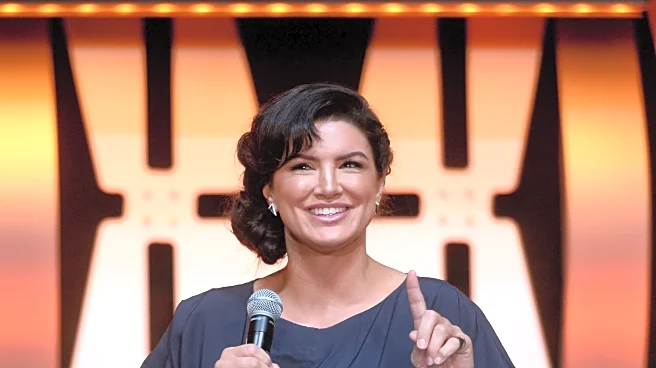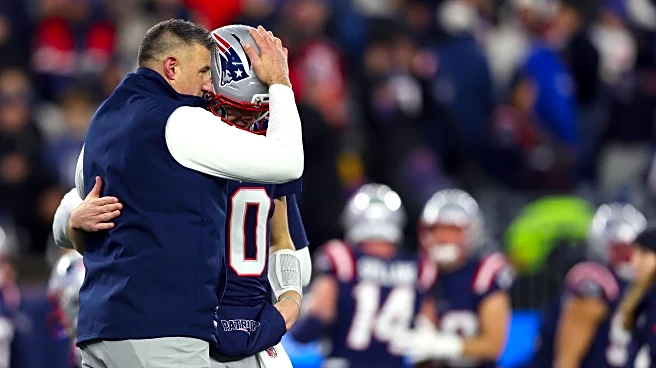What's Happening?
The president of the professional cyclists' union, Adam Hansen, has proposed shortening major road races like the Tour de France to prevent disruptions caused by protesters. This suggestion follows significant disruptions during La Vuelta a Espana, where
the final stage was canceled due to pro-Palestinian protests. These protests were primarily aimed at the participation of the Israel-Premier Tech team, leading to scuffles with riders and blockages on the course. Hansen argues that by removing the platform for protesters, they would be less likely to target these events. He emphasizes that while he supports the right to protest, the safety of riders should not be compromised, as some were physically affected during the protests.
Why It's Important?
The proposal to shorten races highlights the ongoing tension between sporting events and political activism. If implemented, this strategy could impact the visibility and economic viability of major cycling events, which rely heavily on television coverage and sponsorship. Organizers may face challenges balancing the need for security with the financial implications of reduced race lengths. The situation also underscores the broader geopolitical issues affecting sports, as teams like Israel-Premier Tech face backlash due to their national affiliations. This could lead to changes in team sponsorships and participation in international events, affecting the careers of athletes and the dynamics of professional cycling.
What's Next?
If Hansen's proposal gains traction, race organizers might consider implementing shorter race formats or increased security measures to prevent disruptions. This could lead to negotiations with host cities and sponsors to address the financial implications of such changes. Additionally, teams like Israel-Premier Tech may need to reassess their branding and participation strategies in response to political pressures. The cycling community may also engage in discussions about the role of sports in political activism and how to protect athletes from becoming targets in geopolitical conflicts.
Beyond the Headlines
The intersection of sports and political activism raises ethical questions about the responsibilities of athletes and sporting organizations in global issues. The decision to shorten races could set a precedent for other sports facing similar challenges, potentially influencing how events are organized and broadcast. It also highlights the need for dialogue between sports entities and political groups to find common ground and ensure the safety and integrity of sporting events.















